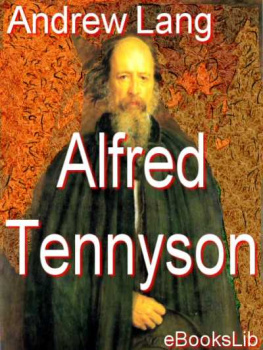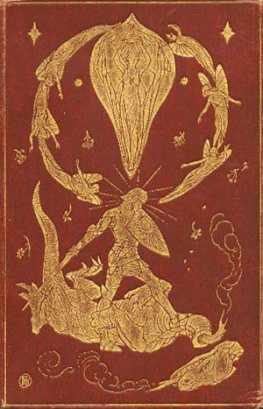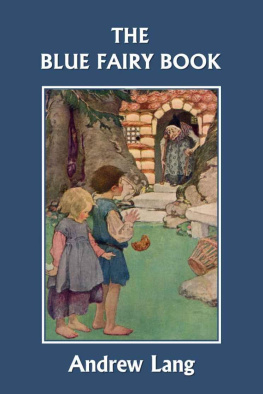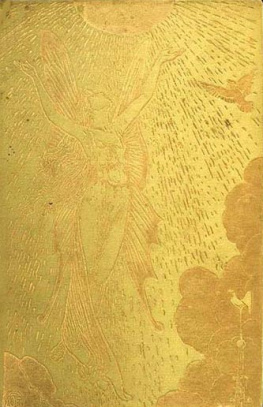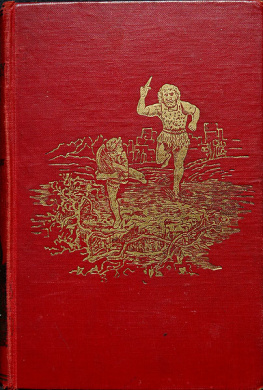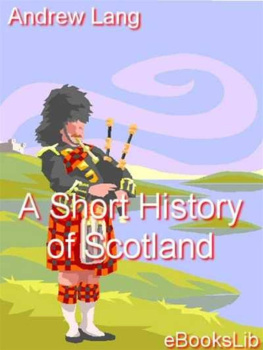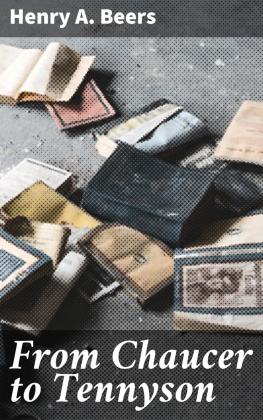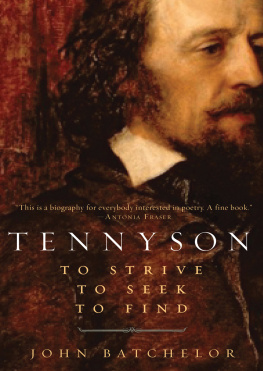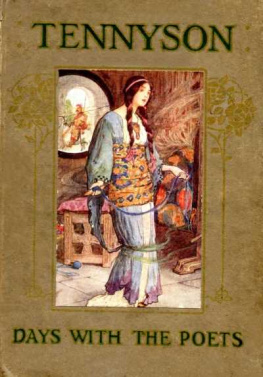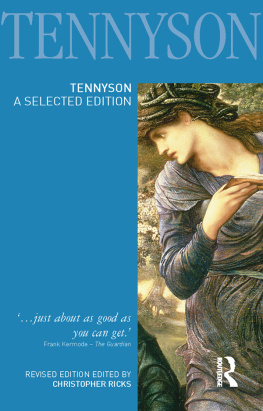You are reading a Deluxe Edition:
It was converted from clean and standard xhtml/xml files.
It uses metatags to identify content, and other data.
The available resources specific to each ebook format were used togive the reader a pleasant reading experience.
More details available at the ebookslib.com website.
Any suggestions that help us improve these editions arewelcome.
The eBooksLib.com team
2011 ebookslib.com
eBook Version
eBooksLib.com
eBooksLib, eBooksLib.com are Registered trademarks owned byeBooksDistrib S.A.R.L (LLC)
___________________
November-2011
ISBN : 978-1-4121-5700-1

INTRODUCTION
I n writing thisbrief sketch of the Life of Tennyson, and this attempt toappreciate his work, I have rested almost entirely on the Biographyby Lord Tennyson (with his kind permission) and on the text of thePoems. As to the Life, doubtless current anecdotes, not given inthe Biography, are known to me, and to most people. But as theymust also be familiar to the author of the Biography, I have notthought it desirable to include what he rejected. The works of the"localisers" I have not read: Tennyson disliked these researches,as a rule, and they appear to be unessential, and often hazardous.The professed commentators I have not consulted. It appeared betterto give one's own impressions of the Poems, unaffected by theimpressions of others, except in one or two cases where matters offact rather than of taste seemed to be in question. Thus on two orthree points I have ventured to differ from a distinguished livingcritic, and have given the reasons for my dissent. ProfessorBradley's Commentary on In Memoriam {1} came out after this sketchwas in print. Many of the comments cited by Mr Bradley from hispredecessors appear to justify my neglect of these curiousinquirers. The "difficulties" which they raise are not likely, as arule, to present themselves to persons who read poetry "for humanpleasure."
I have not often dwelt on parallels to be found inthe works of earlier poets. In many cases Tennyson deliberatelyreproduced passages from Greek, Latin, and old Italian writers,just as Virgil did in the case of Homer, Theocritus, ApolloniusRhodius, and others. There are, doubtless, instances in which aphrase is unconsciously reproduced by automatic memory, from anEnglish poet. But I am less inclined than Mr Bradley to think thatunconscious reminiscence is more common in Tennyson than in thepoets generally. I have not closely examined Keats and Shelley, forexample, to see how far they were influenced by unconscious memory.But Scott, confessedly, was apt to reproduce the phrases of others,and once unwittingly borrowed from a poem by the valet of one ofhis friends! I believe that many of the alleged borrowings inTennyson are either no true parallels at all or are the unavoidablecoincidences of expression which must inevitably occur. The poethimself stated, in a lively phrase, his opinion of the huntersafter parallels, and I confess that I am much of his mind. Theyoften remind me of Mr Punch's parody on an unfriendly review ofAlexander Smith
"Most WOMEN have NO CHARACTER at all." - POPE. "NoCHARACTER that servant WOMAN asked." - SMITH.
I have to thank Mr Edmund Gosse and Mr VernonRendall for their kindness in reading my proof-sheets. They havesaved me from some errors, but I may have occasionally retainedmatter which, for one reason or another, did not recommend itselfto them. In no case are they responsible for the opinionsexpressed, or for the critical estimates. They are those of aTennysonian, and, no doubt, would be other than they are if thewriter were younger than he is. It does not follow that they wouldnecessarily be more correct, though probably they would be more invogue. The point of view must shift with each generation ofreaders, as ideas or beliefs go in or out of fashion, are accepted,rejected, or rehabilitated. To one age Tennyson may seem weaklysuperstitious; to another needlessly sceptical. After all, what hemust live by is, not his opinions, but his poetry. The poetry ofMilton survives his ideas; whatever may be the fate of the ideas ofTennyson his poetry must endure.


CHAPTER I - BOYHOOD - CAMBRIDGE - EARLYPOEMS.
T he life and workof Tennyson present something like the normal type of what, incircumstances as fortunate as mortals may expect, the life and workof a modern poet ought to be. A modern poet, one says, because evenpoetry is now affected by the division of labour. We do not look tothe poet for a large share in the practical activities ofexistence: we do not expect him, like AEschylus and Sophocles,Theognis and Alcaeus, to take a conspicuous part in politics andwar; or even, as in the Age of Anne, to shine among wits and insociety. Life has become, perhaps, too specialised for suchmultifarious activities. Indeed, even in ancient days, as a Celticproverb and as the picture of life in the Homeric epics prove, thepoet was already a man apart - not foremost among statesmen andrather backward among warriors. If we agree with a not unpopularopinion, the poet ought to be a kind of "Titanic" force, wreckinghimself on his own passions and on the nature of things, as didByron, Burns, Marlowe, and Musset. But Tennyson's career followedlines really more normal, the lines of the life of Wordsworth,wisdom and self-control directing the course of a long, sane,sound, and fortunate existence. The great physical strength whichis commonly the basis of great mental vigour was not ruined inTennyson by poverty and passion, as in the case of Burns, nor inforced literary labour, as in those of Scott and Dickens. For longhe was poor, like Wordsworth and Southey, but never destitute. Hemade his early effort: he had his time of great sorrow, and trial,and apparent failure. With practical wisdom he conqueredcircumstances; he became eminent; he outlived reaction against hisgenius; he died in the fulness of a happy age and of renown. Thisfull-orbed life, with not a few years of sorrow and stress, is whatNature seems to intend for the career of a divine minstrel. IfTennyson missed the "one crowded hour of glorious life," he had notto be content in "an age without a name."
It was not Tennyson's lot to illustrate any moderntheory of the origin of genius. Born in 1809 of a Lincolnshirefamily, long connected with the soil but inconspicuous in history,Tennyson had nothing Celtic in his blood, as far as pedigreesprove. This is unfortunate for one school of theorists. His mother(genius is presumed to be derived from mothers) had a genius merelyfor moral excellence and for religion. She is described in the poemof Isabel, and was "a remarkable and saintly woman." In the maleline, the family was not (as the families of genius ought to be)brief of life and unhealthy. "The Tennysons never die," said thesister who was betrothed to Arthur Hallam. The father, a clergyman,was, says his grandson, "a man of great ability," and his"excellent library" was an element in the education of his family."My father was a poet," Tennyson said, "and could write regularverse very skilfully." In physical type the sons were tall, strong,and unusually dark: Tennyson, when abroad, was not taken for anEnglishman; at home, strangers thought him "foreign." Most of thechildren had the temperament, and several of the sons had some ofthe accomplishments, of genius: whence derived by way of heredityis a question beyond conjecture, for the father's accomplishmentwas not unusual. As Walton says of the poet and the angler, they"were born to be so": we know no more.

